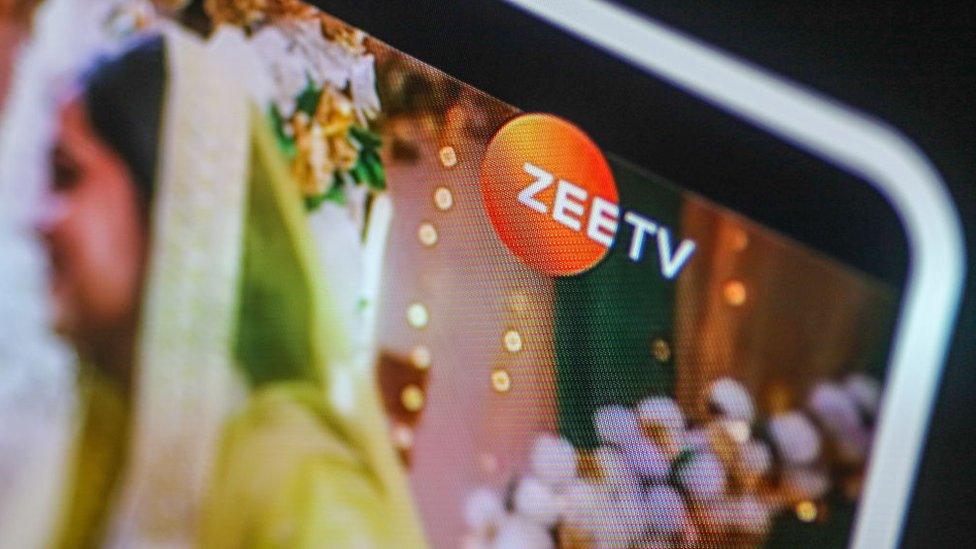Vodafone-Three merger faces competition probe
- Published
- comments

The proposed merger between Vodafone and Three is to be investigated by the UK's competition watchdog.
The Competition and Markets Authority (CMA) will look into whether the deal could harm consumers by leading to reduced choice or higher prices.
The combined group would be the UK's biggest mobile network with about 27 million customers.
The firms said the deal would result in an additional investment of £11bn in the UK.
"We strongly believe that the proposed merger of Vodafone and Three will significantly enhance competition by creating a combined business with more resources to invest in infrastructure to better compete with the two larger converged players," said Vodafone UK chief executive Ahmed Essam.
Meanwhile, Three said the deal would speed up the rollout of 5G, and give customers more reliable coverage.
"Thanks to this transaction, 95% of the population and every school and hospital will be covered by standalone 5G by the end of the decade," said Three UK chief executive Robert Finnegan.
"We are confident that this transaction will deliver significant benefits to our customers, the country and competition, and we look forward to working closely with the CMA as they review our notification."
But the Unite union has estimated bills could rise by as much as £300 per year if it goes ahead.
The UK currently has four major mobile operators - Vodafone, Three, EE (which is part of BT), and Virgin Media O2.
Three general counsel Stephen Lerner has previously told the Business and Trade Committee that there are "no merger related price rises" in the firms' joint business plan, and he was confident the CMA would approve the deal.
Paolo Pescatore, analyst at PP Foresight, said the merger "makes sense", but he expected the firms to make some concessions.
"The entity would have to provide solutions on areas like network sharing, rather than create another problem for the market," he said.
"While a precedent has already been set following the failed Three/O2 deal, let's see if the authorities have a change of heart.
"Both parties need to demonstrate that this is genuinely in the interest of UK plc, the economy, and consumers for it to have a chance of getting over the line."
The CMA has asked third parties - such as other network operators - to submit their views on the planned merger, and how it could affect competition.
"This deal would bring together two of the major players in the UK telecommunications market, which is critical to millions of everyday customers, businesses and the wider economy," said CMA chief executive Sarah Cardell.
"The CMA will assess how this tie-up between rival networks could impact competition before deciding next steps.
"We now have 40 working days to complete this formal Phase 1 investigation, before publishing our findings and any next steps."
- Published22 January 2024

- Published18 January 2024
